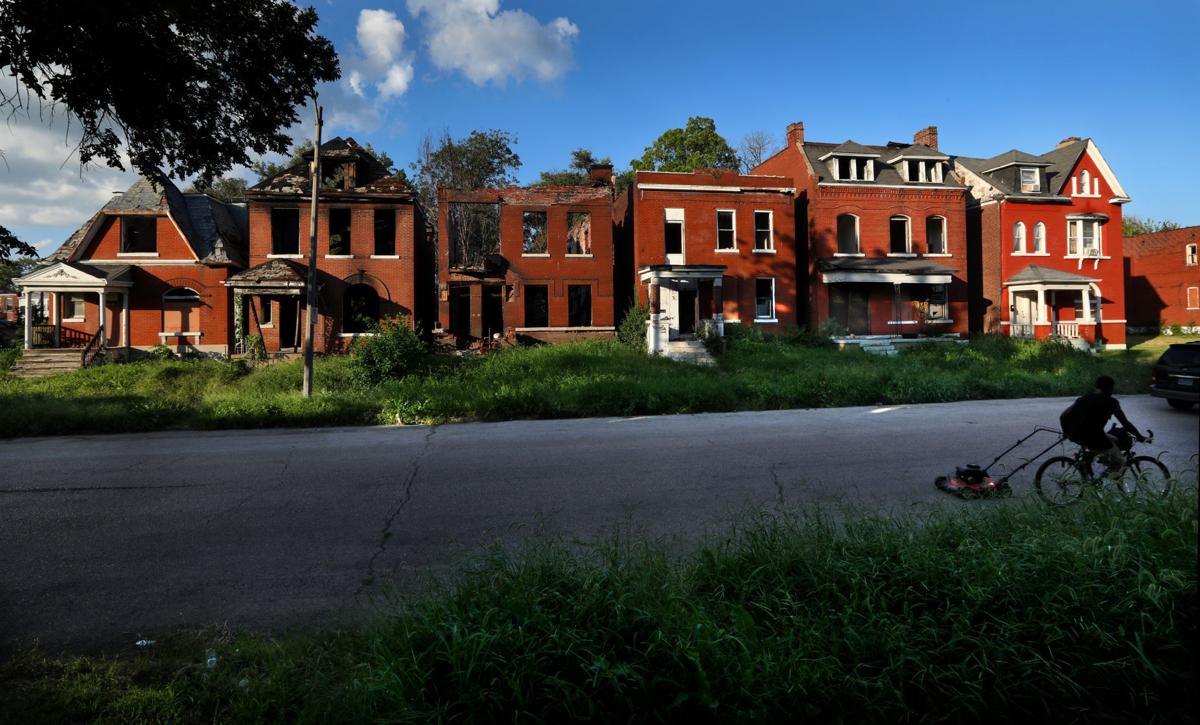ST. LOUIS ŌĆö Former Alderman Jeffrey Boyd resigned this month after federal prosecutors accused him of accepting bribes in return for helping a businessman purchase property from the cityŌĆÖs land bank.
But the staff of the ├█č┐┤½├Į Land Reutilization Authority still wants to wait for BoydŌĆÖs successor to be in office before selling any more property in the city ward he represented for nearly two decades.
The LRAŌĆÖs deferral of sales in the 22nd Ward suggests that aldermanic courtesy ŌĆö an issue brought to the fore by this monthŌĆÖs federal indictments of Boyd, former 21st Ward Alderman John Collins-Muhammad and then-Aldermanic President Lewis Reed ŌĆö isnŌĆÖt a tradition ├█č┐┤½├Į officials will curb quickly.
People are also reading…
Aldermen wield influence throughout the city bureaucracy, from deciding which variances are approved to where speed humps are installed. The indictments unsealed this month accused Collins-Muhammad and Boyd of using their influence to get city staff working on LRA sales or tax abatements ŌĆö and profiting from it. They and Reed have all pleaded not guilty.
At its monthly meeting Wednesday, LRA staff recommended all sales in the north ├█č┐┤½├Į wards formerly represented by Collins-Muhammad and Boyd be deferred ŌĆ£until aldermanic leadership is in place.ŌĆØ The LRA board took no action on offers in the wards, affecting some 30 properties that had received offers.
├█č┐┤½├Į Development Corp. staff employees oversee the LRA, and itŌĆÖs governed by a three-member board appointed by the ├█č┐┤½├Į mayor, comptroller and school district. The staff and board process of dozens of offers each month to buy the thousands of properties it owns, largely concentrated in north ├█č┐┤½├Į wards such as the 21st and 22nd.
SLDC spokeswoman Sara Freetly said in an email that LRA staff asked the board to wait for new aldermen ŌĆ£to ensure community engagement is conducted.ŌĆØ
But she also wrote that ŌĆ£aldermen do not play a role in LRAŌĆÖs decision making.ŌĆØ Their support, she said ŌĆ£is one form of community inputŌĆØ and ŌĆ£other community partners that may be impacted by a sale of LRA property,ŌĆØ such as neighborhood associations, can also weigh in.
The LRA is a special creature of Missouri law, created in 1971 to accept title to the exploding number of abandoned, tax delinquent properties left behind from the exodus of people to the suburbs.
The statute governing LRA says nothing about aldermanic involvement, or the need for a support letter. But LRA staff and the board over the decades have largely deferred to the alderman representing the area before agreeing to sell properties. That influence has led to a wardŌĆÖs alderman blocking purchases for political reasons, despite the land bankŌĆÖs massive number of vacant, unused properties.
LRA directors, Freetly said, ŌĆ£have the sole responsibility to make decisions on the sale of LRA properties.ŌĆØ
ŌĆ£Alderpersons do not control the process in any way,ŌĆØ Freetly wrote. ŌĆ£There has been a history of allowing alderpersons to provide perspective on sales; along with community organizations. Moving forward the LRA board will be implementing standardized practices and protocols that are driven by a score card and metrics that align with the mission of LRA and the .ŌĆØ
According to the indictment, Boyd is accused of accepting bribes in return for submitting an aldermanic support letter to LRA on behalf of a businessman who wanted to buy land bank property. Boyd also made calls to former LRA Director Laura Costello, who was fired in April before the indictments were made public.
ŌĆ£I talked to LRA and I convinced them that, um, I need them to support what you put down,ŌĆØ Boyd is recorded telling the businessman. ŌĆ£And so, I made them nervous.ŌĆØ
After the indictments, SLDC staff announced it was pausing LRA sales from July through October, a move it had been considering for months. Mayor Tishaura O. Jones has pointed to the LRA deferral as part of SLDCŌĆÖs efforts to ŌĆ£assess and standardize its practices and processes.ŌĆØ
Four offers on the LRA agenda Wednesday, two in the 2nd ward and two in the 26th ward, were delayed, with staff citing the suspension of LRA sales. But the board acted on most other offers. Freetly said some of the offers were deferred so staff could do a deeper analysis.
Alderman Shane Cohn has proposed legislation making some reforms to SLDC in response to the indictments, including removing the requirement that an aldermanic letter of support be submitted before SLDC awards business and nonprofit grants under a new program funded with federal COVID-19 relief money.
A Jones spokesman said Wednesday the mayor ŌĆ£believes that the LRA system is antiquated and supports SLDCŌĆÖs freeze on new LRA applications and purchases as well as the agencyŌĆÖs efforts to standardize the process.ŌĆØ
Jones last week told ├█č┐┤½├Į Public Radio in an interview that she had been working with SLDC and its executive director, Neal Richardson, on reforms even before the indictments. And she signaled was open to limiting the authority of aldermen in its decisions.
ŌĆ£No longer can we have a process where the alderperson has ultimate veto authority,ŌĆØ Jones said.


















